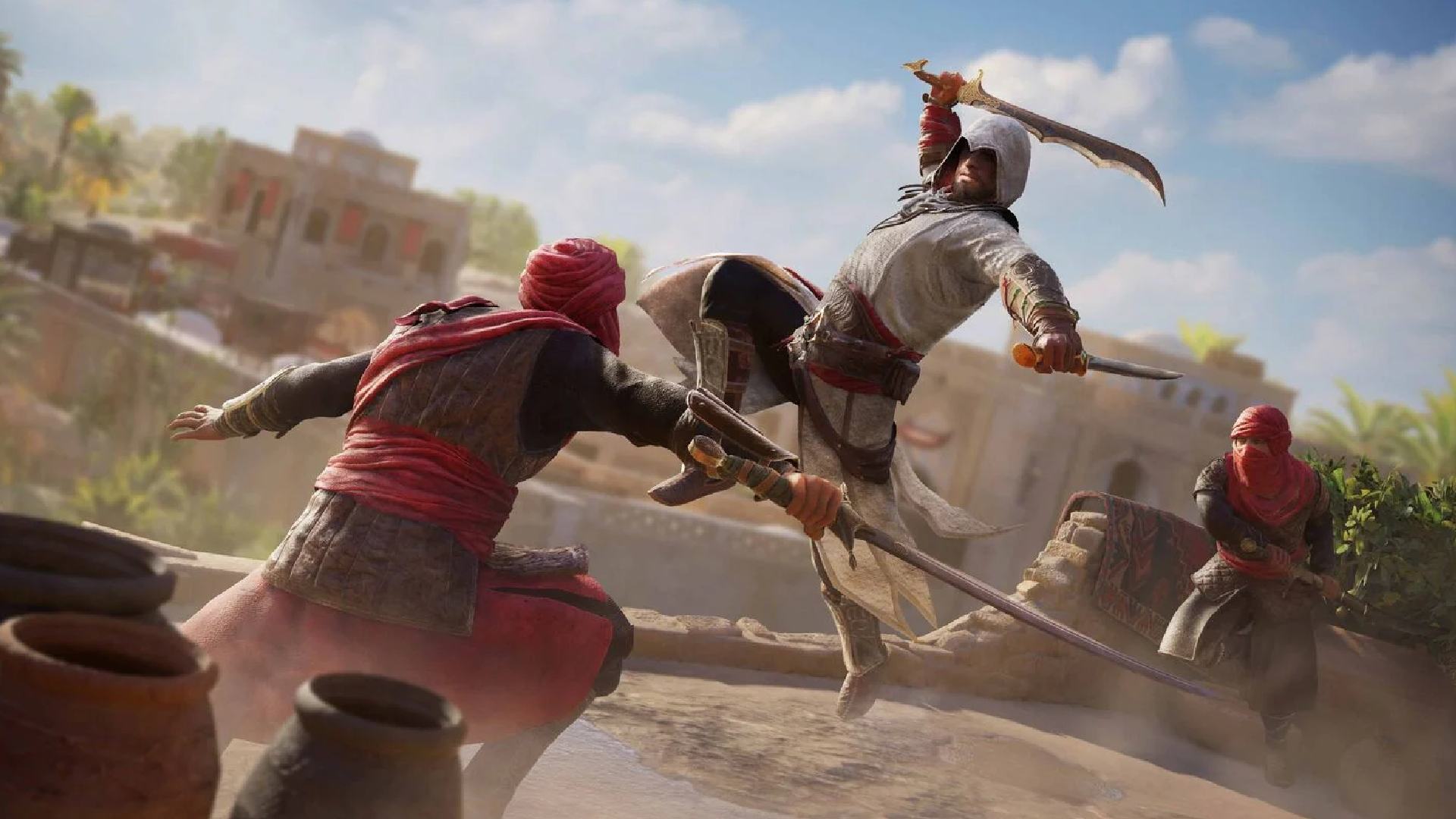
Assassin’s Creed Mirage looks to be a throwback to the golden age of the series – something the franchise is in desperate need of. From shots of the confined Baghdad’s urban sprawl, the emphasis on social stealth and parkour, this upcoming entry looks to fix the modern Assassin’s Creed’s major flaw: its lack of mechanical identity.
If you asked me a decade ago what my favorite game series was, I would have swiftly replied: Assassin’s Creed. When I first played the second game in the series, Assassin’s Creed 2 in 2009, I was hooked. There was everything you could ever want in an open-world game: an excellent story, compelling characters, exciting gameplay, and effective stealth which learned from the playbook of the Hitman series.
For as much as I loved the Ezio trilogy (spanning from Assassin’s Creed 2 to Revelations), I found that the series had begun to lose its way by going bigger and bolder. The cracks began to show with Assassin’s Creed 3; an ambitious yet flawed title that was set during the American Revolution of 1754 to 1783. It attempted to do too much and buckled under the weight of its ambition with under-baked mechanics and an unfocused main narrative that was far from the franchise’s best.
While things were back on track with Assassin’s Creed 4: Black Flag, a genuinely excellent pirate game but so-so assassination simulator, the franchise never quite hit the mark the same way ever again. Assassin’s Creed Mirage could change all that if the course correction can be done effectively and avoid repeating the same mistakes.
That’s because, in its current form, Assassin’s Creed bears little resemblance to its earlier incarnations. Following the disastrous launch of Assassin’s Creed Unity in 2014, a title which itself acted as a streamlined throwback to the early days of the series, and the lukewarm efforts of Assassin’s Creed Syndicate, Ubisoft took a year off mainline entries and went back to the drawing board. This meant the first break in annual releases since the two-year gap that separated the original and the sequel and changed the landscape of the franchise for years to come.
Back to the start

Assassin’s Creed Origins is an excellent RPG that features robust hit-box combat, one of the series’ best protagonists in Bayek of Siwa, and a truly gorgeous Ptolemaic Egypt starting from 49 BC. It was the furthest back in history that the franchise had gone up to that point, and detailed exactly how the ancient assassins came about around a thousand years before the rise of Al Mualim’s order in the original Assassin’s Creed.
It made for a refreshing break from the modern missteps of the previous title, Assassin’s Creed Syndicate, with its button-mashing combat, reliance on guns, and disappointing story. Origins offered a back-to-basics approach that was ultimately for the better, despite introducing a host of new issues that would continue to persist through its sequels.
While Assassin’s Creed Odyssey is a great action-adventure title, it gave up so much of the series’ core identity in pursuit of its Ancient Greek power fantasy. It swapped out the hidden blades and stealth for Kassandra (or Alexios if you’re one of those people) and her spear of Leonidas. I personally loved this game nearly as much, but I missed what had made Origins and the prior early titles so special; there was a de-emphasis on parkour, stealth seemed non-existent, and the intrigue built up in its predecessor simply wasn’t there. It’s something that Assassin’s Creed Valhalla attempted to resurrect in its 2020 release. The latest entry in the saga attempted to appease series veterans and newer converts alike and ultimately came up short on both counts.
Memories and mirages

From what I’ve seen of Assassin’s Creed Mirage, it looks to be taking the series back to its roots, much like how Origins and Unity had before it. This means an emphasis on more intimate city environments, social and conventional stealth as well as the hidden blade’s triumphant return.
Assassin’s Creed is best when it stays true to its core premise. This boils down to methodically going through a hit list by creatively killing off your oppressors to achieve your ultimate goal. Whether that meant taking down Aloys la Touche from the gallows in revolutionary-era France or Bayek obliterating Berenike (The Crocodile) in the swamps of Eygpt, these moments had more impact than anything in the later sequels.
Player choice is the name of the game, and players ought to be able to approach assassination missions in a wide range of different ways. Assassin’s Creed Mirage needs to remember to stay true to these fundamentals and deliver on the intimate hunter and prey set up that has made the series so beloved. That’s because it’s not Watchdogs, Ghost Recon, The Division or any other number of generic open worlds that the French publisher has pumped out in recent years, but the flagship line that put it on the map.
If anything, Mirage should carry on the traditions borrowed for the latter Splinter Cell titles, Conviction and Blacklist, just as Unity had done before it. If the upcoming game can remember the assassinations and keep stealth a core component then the latest in the franchise could be one of the best yet.
Assassin’s Creed Mirage is expected later in 2023 for PS5, Xbox Series X, PC and previous generation consoles.







